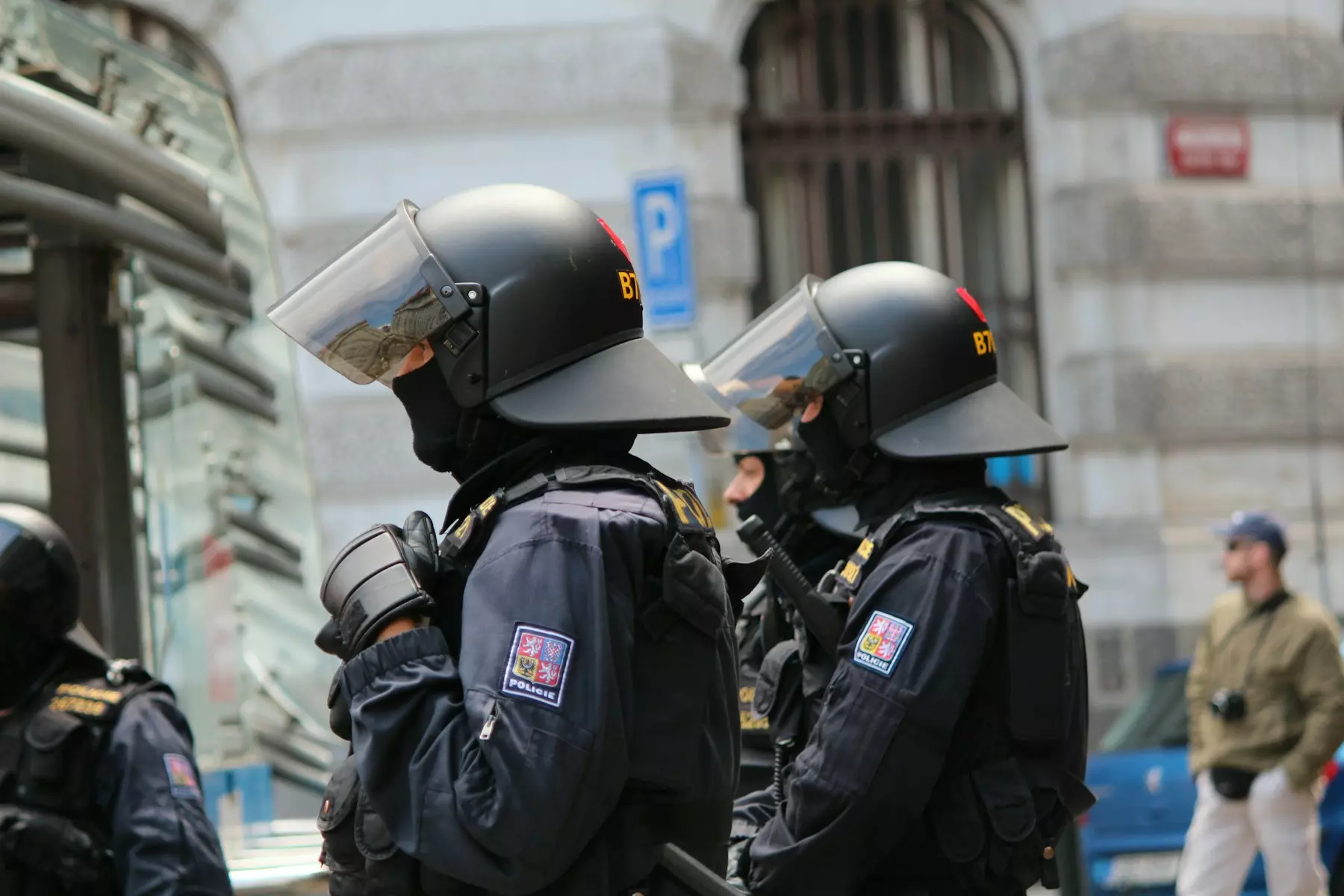Lessons for Property Buyers: Spain’s €260M Crypto Ponzi Scheme and Protecting Your Real Estate Investment
When you’re planning to buy property in Europe, the last thing you expect is to lose your investment to fraud. Yet recent news from Spain serves as a stark reminder that financial crime can strike anywhere, even in established European markets. Spain’s Civil Guard recently arrested the alleged mastermind behind a massive €260 million cryptocurrency-linked Ponzi scheme, highlighting the sophisticated tactics fraudsters use to separate people from their money. While this particular case involved cryptocurrency, the lessons learned apply directly to anyone looking to purchase property across Europe, whether you’re a first-time buyer eyeing a holiday home in Portugal or an experienced investor building a portfolio across multiple countries.
Get 50% OFF!
Subscribe to our newsletter and enjoy a 50% discount on all listing packages, no strings attached!

The connection between financial fraud and property investment might not seem obvious at first glance. However, the same red flags that should have warned crypto investors about this Ponzi scheme apply equally to real estate transactions. Understanding how these scams work and learning to spot warning signs can protect your hard-earned money when navigating European property markets. This article explores what happened in Spain and, more importantly, how you can safeguard yourself when making one of the biggest financial decisions of your life.
Spain’s €260M Crypto Ponzi Scheme Exposed
The Spanish Civil Guard’s arrest of the alleged leader behind a €260 million Ponzi scheme sent shockwaves through both the cryptocurrency and investment communities. According to reports, the scheme promised investors guaranteed returns through cryptocurrency trading, a classic hallmark of fraudulent operations. The operation reportedly affected thousands of victims across multiple countries, with many losing their life savings. What makes this case particularly relevant to property buyers is that many victims were ordinary people looking for ways to grow their savings, often with the specific goal of purchasing real estate in Spain or elsewhere in Europe.
The scheme operated by promising unrealistic returns that far exceeded what legitimate investments could offer. Investigators discovered that instead of investing the money as promised, the operators used new investor funds to pay earlier investors, creating the illusion of profitability. This classic Ponzi structure eventually collapsed when new investments dried up. For property buyers, this case demonstrates how sophisticated fraud can appear legitimate on the surface, complete with professional websites, testimonials, and seemingly credible representatives. The lesson here is clear: if an investment opportunity sounds too good to be true, especially one promising to help you quickly accumulate funds for a property purchase, it almost certainly is.
How Property Buyers Can Spot Investment Fraud
Recognizing fraud before it’s too late requires understanding the common tactics scammers use. When you’re saving for or purchasing property in Europe, you become a target for various schemes promising to help you achieve your goals faster. The Spanish crypto case revealed several red flags that apply equally to property-related fraud: guaranteed high returns, pressure to invest quickly, complex or vague investment strategies, and difficulty withdrawing funds. These warning signs should immediately raise concerns, whether you’re considering an investment to fund your property purchase or evaluating a real estate opportunity itself.
Property-specific fraud can take many forms across European markets. Some scammers pose as property developers offering off-plan properties at “exclusive” prices, taking deposits and disappearing. Others create fake rental income schemes, promising guaranteed returns on properties that either don’t exist or aren’t actually available for investment. In countries like Spain, Portugal, and Greece, where foreign buyers are particularly active, fraudsters specifically target international investors who may be less familiar with local regulations and practices. Always verify the credentials of anyone you’re working with, research properties independently, and never transfer money to personal accounts or offshore entities without proper legal documentation.
Key Warning Signs to Watch For:
- Pressure to make quick decisions without proper due diligence time
- Requests for payment to personal accounts rather than company accounts
- Promises of guaranteed returns or “risk-free” investments
- Lack of proper documentation or reluctance to provide legal paperwork
- Unregistered agents or companies not listed with official regulatory bodies
- Properties priced significantly below market value without clear explanation
- Sellers unwilling to allow independent property inspections
- Complex payment structures involving multiple countries or cryptocurrencies
Protecting Your European Real Estate Purchase
Protecting yourself when buying property in Europe requires a multi-layered approach combining legal safeguards, professional assistance, and personal vigilance. The first and most critical step is hiring a qualified, independent lawyer who specializes in property law in your target country. In Spain, for example, you need a lawyer who understands the complexities of Spanish property law, can conduct proper title searches, and will represent your interests alone, not those of the seller or agent. This professional should verify that the property has no outstanding debts, legal issues, or claims against it before you commit any funds.
Different European countries have varying legal requirements and protections for property buyers. In France, the “compromis de vente” provides a cooling-off period, while in Germany, all property transactions must go through a notary. Portugal requires a fiscal number (NIF) before you can purchase property, and Italy has specific regulations around rural properties and historical buildings. Understanding these country-specific requirements isn’t just bureaucratic box-ticking; these regulations exist to protect buyers from fraud and ensure transparent transactions. Working with professionals who know these systems inside and out significantly reduces your vulnerability to scams.
Essential Protection Measures by Country:
| Country | Key Protection | Typical Legal Costs | Mandatory Checks |
|---|---|---|---|
| Spain | Independent lawyer required | 1-2% of purchase price | Land registry, debts, planning permissions |
| Portugal | NIF registration mandatory | 1-1.5% of purchase price | Energy certificate, title verification |
| France | 7-day cooling-off period | 2-3% of purchase price | Diagnostics, notary verification |
| Italy | Notary involvement required | 2-4% of purchase price | Cadastral checks, building permits |
| Greece | Tax clearance certificate | 1-2% of purchase price | Engineer’s report, ownership verification |
Safe Payment Methods for Cross-Border Property Transactions
The payment process represents one of the most vulnerable points in any international property transaction. The Spanish Ponzi scheme succeeded partly because it exploited people’s unfamiliarity with cryptocurrency transactions and cross-border payments. When buying European property, never transfer large sums without proper safeguards in place. Legitimate property transactions should always involve payments to registered company accounts, with clear paper trails and receipts for every transaction. Be extremely wary of any request to pay in cryptocurrency, send money to personal accounts, or transfer funds to countries unrelated to your property purchase.
Using a specialized currency transfer service or your lawyer’s client account provides additional security for international property purchases. Many experienced buyers use escrow services, where funds are held by a neutral third party until all conditions are met and the property legally transfers to your name. In Spain, it’s common to pay a deposit (typically 10%) into the lawyer’s client account rather than directly to the seller. Similarly, in France, the notary holds funds until completion. These mechanisms protect both parties and provide recourse if something goes wrong. Always insist on official receipts for every payment, maintain copies of all documentation, and ensure that payment terms are clearly specified in your purchase contract.
Recommended Payment Practices:
- Use specialized currency services like Wise, CurrencyFair, or OFX for better rates and tracking than traditional banks
- Never pay cash for property transactions, regardless of any “discount” offered
- Verify account details independently by calling known company numbers, not using contact details provided in emails
- Request itemized receipts for every payment, including deposits, legal fees, and taxes
- Confirm completion dates before transferring final payments
- Keep detailed records of all communications, agreements, and financial transactions
- Use your lawyer’s client account for deposits when possible
- Confirm registration of the property in your name before releasing final payments
Frequently Asked Questions
How can I verify a property seller’s legitimacy in Spain?
Check the property register (Registro de la Propiedad) to confirm ownership, hire an independent lawyer to conduct due diligence, verify the seller’s identity through official documents, and ensure the selling agent is registered with the relevant professional body. Your lawyer should also confirm there are no outstanding debts, mortgages, or legal claims against the property.
What should I do if I suspect property fraud?
Immediately stop all payments and communications with the suspected fraudster. Contact local police and the relevant consumer protection agency in the country where the property is located. Report the incident to your bank or payment provider to attempt to recover funds. Consult with a local lawyer specializing in fraud cases. In Spain, contact the Civil Guard’s economic crimes unit; in other EU countries, contact the European Consumer Centre for your country.
Are cryptocurrency payments safe for European property purchases?
Generally, no. Legitimate property transactions in Europe use traditional banking systems with clear audit trails and legal protections. Cryptocurrency payments lack these safeguards and are often a red flag for potential fraud. Stick to bank transfers to verified company accounts, with all transactions documented through your lawyer and included in official contracts.
How much should I budget for legal fees when buying property in Europe?
Legal fees typically range from 1% to 4% of the property purchase price, depending on the country and complexity of the transaction. Spain averages 1-2%, France 2-3%, Italy 2-4%, and Portugal 1-1.5%. While this might seem expensive, proper legal representation is your primary defense against fraud and ensures your purchase is legally sound. Never skip legal representation to save money.
What’s the safest way to transfer a large deposit for a European property?
Use a specialized foreign exchange service or your lawyer’s client account rather than a standard bank transfer. Ensure the receiving account is a registered business account, not a personal account. Request confirmation of receipt in writing, obtain official receipts, and ensure the deposit terms are clearly specified in a legally binding contract reviewed by your independent lawyer.
How long does a typical property purchase take in different European countries?
Spain typically takes 2-3 months, France 3-4 months, Portugal 2-3 months, Italy 3-6 months, and Germany 2-3 months. Be suspicious of anyone pressuring you to complete much faster, as this doesn’t allow proper due diligence. Legitimate sellers understand that thorough legal processes protect everyone involved and won’t pressure you to skip essential steps.
The arrest in Spain’s €260 million Ponzi scheme serves as a powerful reminder that financial fraud remains a serious threat, even in regulated European markets. For property buyers, the lessons are clear: due diligence isn’t optional, professional legal representation is essential, and if something seems too good to be true, it probably is. Whether you’re buying your first apartment in Barcelona or adding to an established property portfolio across Europe, protecting yourself requires vigilance, patience, and working with qualified professionals who have your interests at heart. The European property market offers tremendous opportunities for both lifestyle improvement and investment, but only when approached with appropriate caution and proper safeguards. By learning from cases like this Spanish fraud, verifying credentials, using safe payment methods, and never cutting corners on legal representation, you can confidently navigate European property markets while keeping your investment secure. Remember, the few extra weeks spent on proper due diligence and the cost of qualified legal help are insignificant compared to the devastating financial and emotional cost of falling victim to fraud.





Join The Discussion